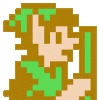Hello
I have my abstract CGameState class, which has 3 virtual functions: Logic, Events and Render. Then I have my CGame class, that contains the CGameState* object, the screen object and methods that change the state.
The main loop is like:
CurrentState->Events();
CurrentState->Logic();
CurrentState->Render();
Now, if during the application there is a need to change the state, I am using ChangeState method, which basically deletes the old CGameState* and creates the proper new one. For example:
void ChangeState(STATE_MENU)
{
delete CurrentState;
CurrentState=new CMenu;
}
And the CMenu inherites from the CGameState, to use its own Logic, Events, and Render methods.
Here goes the problem:
When there is a need to change the state, I have no access to the (Cgame game) object, because it contains the CurrentState object.. So I cannot use the ChangeState method :/ How can I do it?



